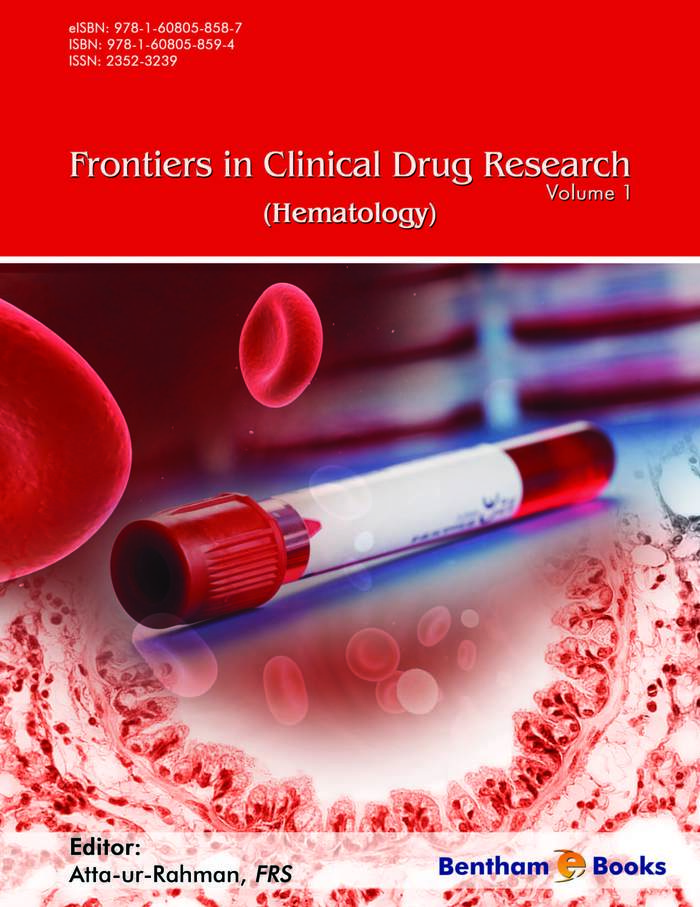Frontiers in Clinical Drug Research: Hematology is an eBook series that brings updated reviews to readers interested in advances in the development of pharmaceutical agents for the treatment of hematological disorders. The chapters in this volume of the eBook series are written by leading authors in their respective fields. There are several hematology related topics in this introductory volume covering in silico methods in hematology drug design, beta-thalassemia major, multiple myeloma, leukemia and more.
Chapter 1 and 2 covers research specifically on leukemia. The first chapter by Giannoni and de Totero presents findings about the in vivo microenvironment surrounding cells responsible for chronic lymphocytic leukemia. The second chapter is a review of epigenetic drugs used in leukemia and myelodysplastic syndrome. Specifically, two categories of drugs are presented, namely DNA methyltransferase inhibitors (DNMTi) and histone deacetylase inhibitors (HDACi).
Bonamino et al. in chapter 3, provides a comprehensive review on the molecular and genetic mechanisms involved in the onset and treat of myeloproliferative neoplasms. In Chapter 4, Minarik and Scudla review the history of multiple myeloma, focusing on treatment with three agents - Thalidomide, Bortezomib and Lenalidomide - drugs which have arguably changed the standards used to treat this dsease.
In chapter 5 of this volume, Xu et al. have summarized recent advances in the application of molecular imaging techniques employed in drug research in hematology. The article also highlights the different stages of the research process where such techniques can prove to be very useful for investigators.
In chapter 6, Mamtani and Kulkarni have presented a review on several treatments for β-thalassemia Major. The review covers a number of pharmacological agents that reduce tissue iron deposition as well as diagnostic methods based on MRI techniques for the early detection of iron overload. This chapter also accounts for some advances in β-thalassemia genomic research.
In chapter 7 of the eBook, Chakraborty and Priya Doss review computer based approaches such as SNP mapping and study of epigenetic marker variation in the ABL1 gene. These have paved the way for computational methods for treating patients on a personalized regimen.
Chapter 8, written by Lukasik and Michalak, summarizes the use of acetylsalicylic acid (aspirin) in the treatment of cerebrovascular disorders.
I hope that readers will find value in this collection of reviews and draw inspiration for conducting further drug discovery research in the field of hematology.
I am grateful for the timely efforts made by the editorial personnel, especially Mr. Mahmood Alam (Director Publications), Ms. Maria Baig (Manager Publications) and Mr. Taimur at Bentham Science Publishers for their assistance.
Atta-ur-Rahman, FRS
Kings College
University of Cambridge
Cambridge
UK

